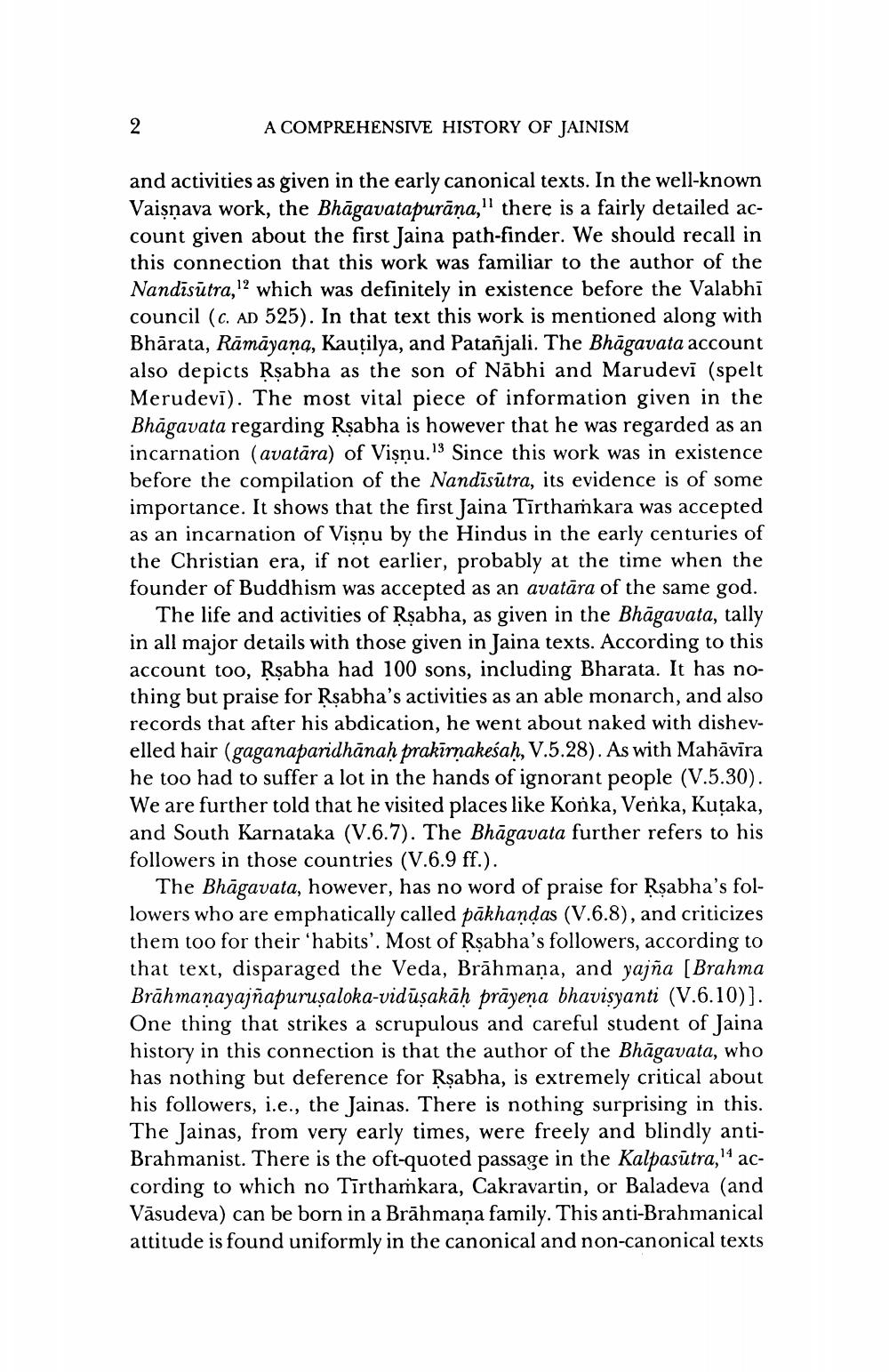________________
2
A COMPREHENSIVE HISTORY OF JAINISM
and activities as given in the early canonical texts. In the well-known Vaiṣṇava work, the Bhagavatapurana," there is a fairly detailed account given about the first Jaina path-finder. We should recall in this connection that this work was familiar to the author of the Nandisutra,12 which was definitely in existence before the Valabhi council (c. AD 525). In that text this work is mentioned along with Bhārata, Rāmāyaṇa, Kautilya, and Patanjali. The Bhāgavata account also depicts Rṣabha as the son of Nabhi and Marudevi (spelt Merudevi). The most vital piece of information given in the Bhāgavata regarding Rṣabha is however that he was regarded as an incarnation (avatāra) of Viṣṇu.13 Since this work was in existence before the compilation of the Nandīsūtra, its evidence is of some importance. It shows that the first Jaina Tīrthamkara was accepted as an incarnation of Visnu by the Hindus in the early centuries of the Christian era, if not earlier, probably at the time when the founder of Buddhism was accepted as an avatāra of the same god.
The life and activities of Rṣabha, as given in the Bhāgavata, tally in all major details with those given in Jaina texts. According to this account too, Rṣabha had 100 sons, including Bharata. It has nothing but praise for Rṣabha's activities as an able monarch, and also records that after his abdication, he went about naked with dishevelled hair (gaganaparidhanaḥ prakirnakeśaḥ, V.5.28). As with Mahāvīra he too had to suffer a lot in the hands of ignorant people (V.5.30). We are further told that he visited places like Konka, Venka, Kuṭaka, and South Karnataka (V.6.7). The Bhagavata further refers to his followers in those countries (V.6.9 ff.).
The Bhāgavata, however, has no word of praise for Rṣabha's followers who are emphatically called pākhaṇḍas (V.6.8), and criticizes them too for their 'habits'. Most of Rṣabha's followers, according to that text, disparaged the Veda, Brāhmaṇa, and yajña [Brahma Brāhmaṇayajñapuruṣaloka-viduṣakāḥ prayeṇa bhaviṣyanti (V.6.10)]. One thing that strikes a scrupulous and careful student of Jaina history in this connection is that the author of the Bhāgavata, who has nothing but deference for Rṣabha, is extremely critical about his followers, i.e., the Jainas. There is nothing surprising in this. The Jainas, from very early times, were freely and blindly antiBrahmanist. There is the oft-quoted passage in the Kalpasūtra,11 according to which no Tīrthamkara, Cakravartin, or Baladeva (and Vasudeva) can be born in a Brāhmaṇa family. This anti-Brahmanical attitude is found uniformly in the canonical and non-canonical texts




